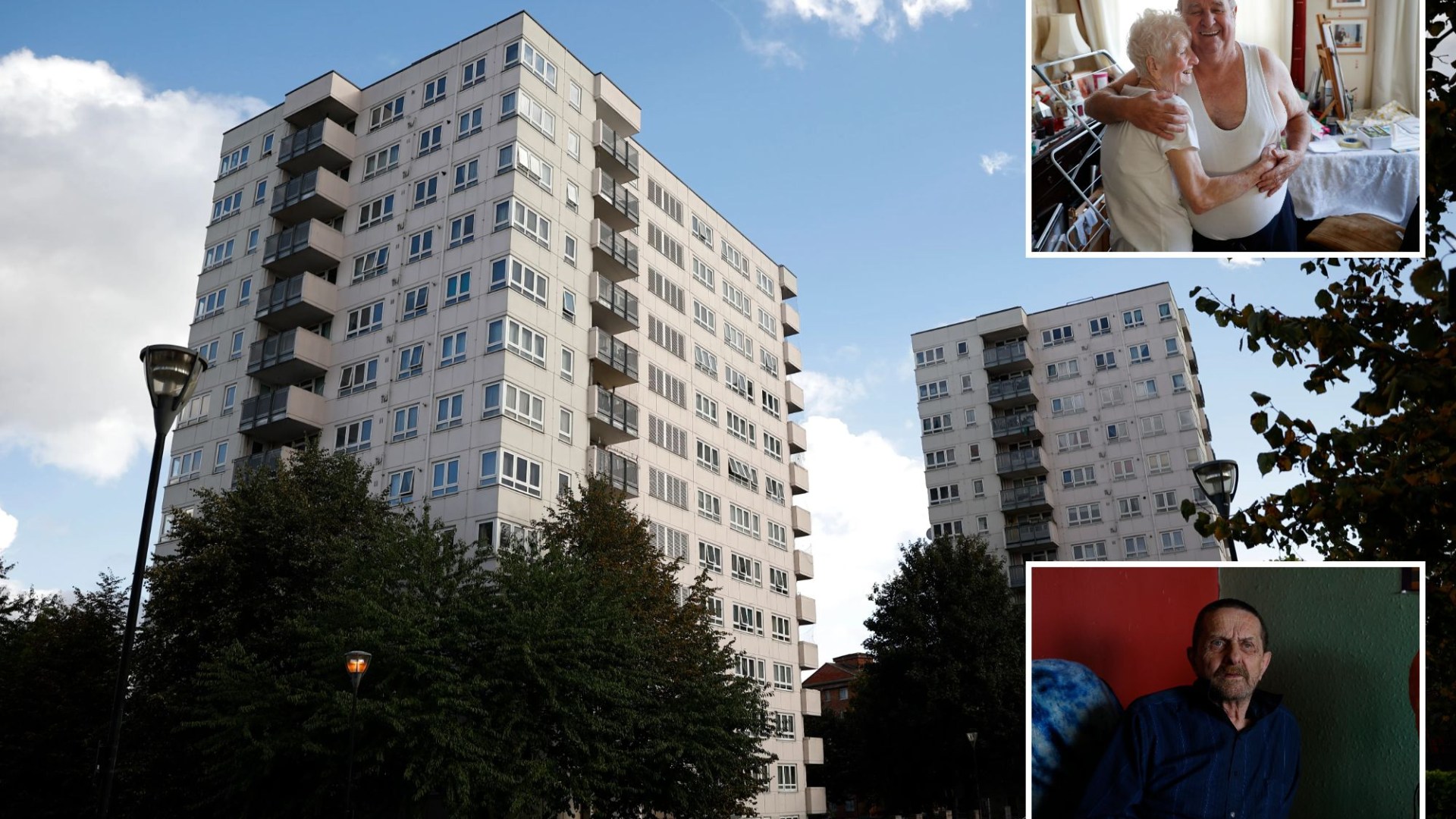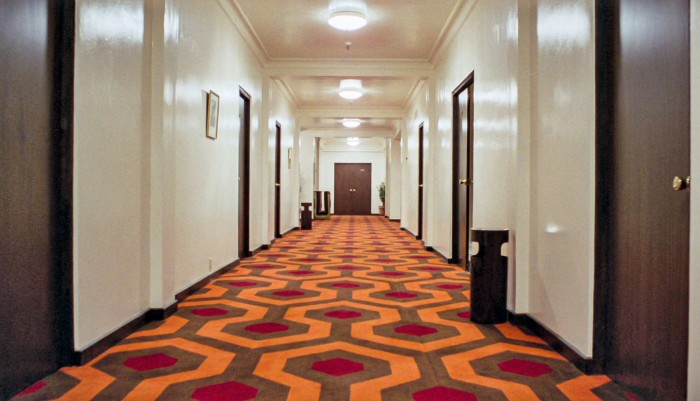In Eimear McBride’s novel Strange Hotel, the unnamed protagonist arrives at a hotel and finds the sense, more than the sight, of other people. There are cigarette butts in the courtyard and the sound of someone next door zipping up a suitcase and boiling the kettle. When she meets up with men in her room, they are fleeting, nameless exchanges: tonight, he is hers, tomorrow he will be someone else’s. The hotel seems to belong only to the protagonist, but we are aware that it is hosting countless other people and happenings. She can feel their shadows.
It is this ghostly space of busy isolation that we enter into when we stay at a hotel. They have this feeling of insectile activity; as if too many people’s memories are occurring one over the top of another.
When I began writing my new collection of short stories, I knew almost immediately that I wanted to set it in a hotel. I was interested in exploring what it means to be a woman moving around in the world, attempting to find some sort of safety within unsafe spaces. Taking the reader into a hotel felt like asking them to enter a place that they would instinctively feel cautious or uneasy about. I wanted them to expect, subconsciously, some darkness. In the stories in The Hotel, which are linked by their shared location, the land itself is haunted and the process of building the hotel is cursed from the start. People are drawn there; some leave without occurrence, but many find themselves, for a long time afterwards, unable, quite, to forget it. In one story a lonely girl staying with her parents discovers a new friend who she later bricks up inside a wall; in another, a resident monster falls in love.

While I was researching and writing, I read a lot of books, rewatched films and thought about the space. Why is it so often portrayed as a haunted space, filled with ghosts and danger?
I haven’t always seen hotels as sites of unease. I don’t remember ever staying at one as a child, and so they took on a sort of mythic status in my mind. Compared to the familiar stone cottages on the Isle of Wight, with their gardens filled with long orange slugs, the crumbling houses in France or the dormitories on school trips, with their stink of teenage shoes, hotels seemed enormously luxurious, the height of sophistication. They were, for me, Lucy Honeychurch’s long hair lit with soft Florence light in A Room with a View; mysterious and very grown-up.

But the first time I stayed in one I began to see their potential for discomfort. I was around 23 and had won a writing competition, the prize for which was a few nights’ stay in a hotel in the Lake District. It had a long winding drive and glowing soft stone. The room was enormous and my partner and I cavorted around, jumped on the bed, filled the vast bath to the top. The next morning, when we returned after breakfast, it had changed. Someone – we never saw who – had come in and filled it with their presence. The heavy curtains had been tied, the bed was made, even our clothes had been tidied away. We felt ashamed of our messy suitcase, our unmade bed, and also unnerved. The thought occurred to me that the door could open at any time and someone could come in and move us around the way they had moved our things. They could come in when we slept and fill the bath with milky water, open all the windows, tuck the bedding in around us so tight that we could not move. Some illusion and pretence of solitude and privacy was shattered. Perhaps we had thought we had the only key.
This sense that a hotel is simultaneously empty and filled is no clearer than at the Overlook Hotel in Stephen King’s The Shining. Danny and his parents are travelling to the Overlook for the winter off-season. The enormous hotel, located high in the mountains, will be empty of guests and other staff and the family will be snowed in.
Already, here is the sense that something is wrong: a cavernous empty hotel is not a suitable home for a small family. Except, because this is a horror novel, the emptiness is an illusion. The Overlook is bustling with the dead, with fragments and flashes of trapped memories that fill not only the corridors, the baths and the gardens but also the fragile, violent mind of Danny’s father.

These themes echo through Joanna Hogg’s film The Eternal Daughter. Tilda Swinton plays both a middle-aged filmmaker, Julie, and her elderly mother, Rosalind. It is Rosalind’s birthday and they have travelled together to a rural hotel to celebrate. The hotel has all the hallmarks of a classic horror location: a too-long driveway, gardens filled with low-floating mist, an unfriendly receptionist. There seem to be no other guests, but Julie is kept awake by noises from the floor above.
As the days pass, it becomes clear that Rosalind has existing, and troubling, memories of the hotel; it used to be a country house owned by her family. Memories are layered one on top of the other. Rosalind herself says it: “They hold these stories. And we’re here now. And that was then. And there’s just this muddle in me, of when it is exactly.”
If rooms hold stories then the hotel, with its ever-changing cast of room owners, is the ultimate archive of memories. Almost all of us have experienced the moment of entering a hotel room and finding something a previous occupant has left there; some of us have had the unpleasant moment of going into the room and finding someone else asleep in the bed. My father sometimes recounts the story of the ghost at his honeymoon. In a cottage in the Lake District he saw something on the stairs: a blur of movement. There was no feeling of malevolence but only of repetition, as of someone who had been there before.
The German word for the uncanny, unheimlich, which translates directly as unhomely, tells us something else important. The unheimlich is the place between the familiar and unfamiliar. It goes some way to explaining why horror is so often located in domesticity.
Miranda July takes us to this hinterland in her new novel All Fours when the protagonist moves into a motel and employs a designer to decorate the room. Though the room is beautiful, the protagonist finds herself undone. “I was stuck in some terrible purgatory, neither here nor there, not home but not really anywhere else.” This in-between feeling mirrors the days in which she sits in the hospital after her son has been born, waiting to see if he will live or die. Sometimes we cannot go back home. By the end, the motel has a horror-like draw. “The finished room was hard to leave and not because it was so beautiful.”
I wanted, in The Hotel, to show a building as if it were a person, from conception to death. Whenever I write I am aware of places, houses, forests or rivers, as bodily: as characters in a story. Sitting at my desk, writing these stories, I felt haunted myself, as if when I turned around there would be someone there, waiting. Throughout the collection, a refrain repeats itself, scrawled on walls or in diaries: “be there soon”. The Hotel draws us in and, sometimes, does not let us go again.
The Hotel by Daisy Johnson is published by Jonathan Cape at £14.99








































































































































































You must be logged in to post a comment Login